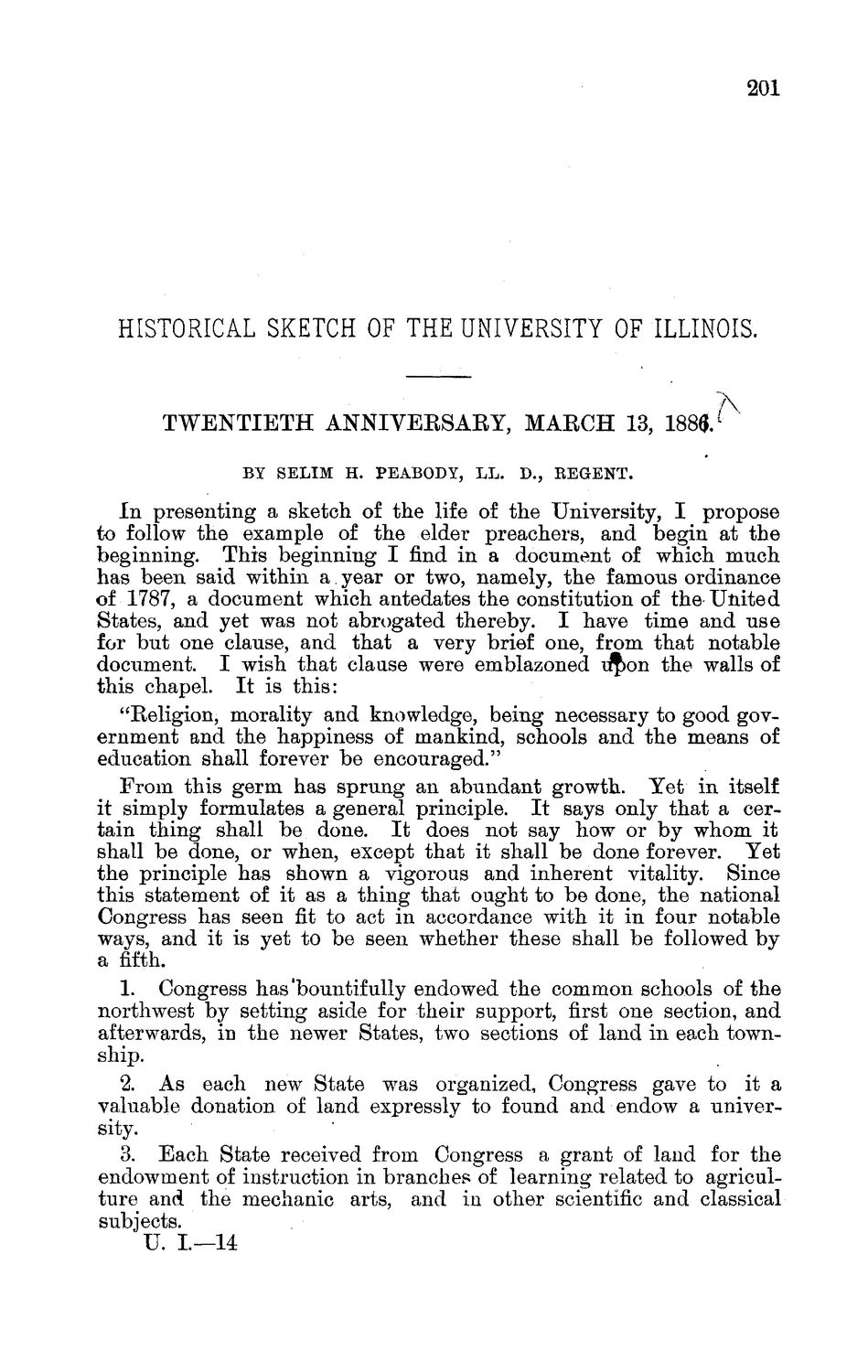| |
| |
Caption: Board of Trustees Minutes - 1888
This is a reduced-resolution page image for fast online browsing.

EXTRACTED TEXT FROM PAGE:
201 HISTORICAL SKETCH OF THE UNIVERSITY OF ILLINOIS. T W E N T I E T H ANNIVERSARY, M A E C H 13, 188$.( BY SELIM H. PEABODY, LL. D., REGENT. I n presenting a sketch of the life of the University, I propose to follow the example of the elder preachers, and begin at the beginning. This beginning I find in a document of which much has been said within a year or two, namely, the famous ordinance of 1787, a document which antedates the constitution of the United States, and yet was not abrogated thereby. I have time and use for but one clause, and that a very brief one, from that notable document. I wish that clause were emblazoned trf>on the walls of this chapel. I t is this: "Religion, morality and knowledge, being necessary to good government and the happiness of mankind, schools and the means of education shall forever be encouraged." From this germ has sprung an abundant growth. Yet in itself it simply formulates a general principle. I t says only that a certain thing shall be done. I t does not say how or by whom it shall be done, or when, except that it shall be done forever. Yet the principle has shown a vigorous and inherent vitality. Since this statement of it as a thing that ought to be done, the national Congress has seen fit to act in accordance with it in four notable ways, and it is yet to be seen whether these shall be followed by a fifth. 1. Congress has'bountifully endowed the common schools of the northwest by setting aside for their support, first one section, and afterwards, in the newer States, two sections of land in each township. 2. As each new State was organized, Congress gave to it a valuable donation of land expressly to found and endow a university. 3. Each State received from Congress a grant of land for the endowment of instruction in branches of learning related to agriculture and the mechanic arts, and in other scientific and classical subjects. U. I.—14
| |